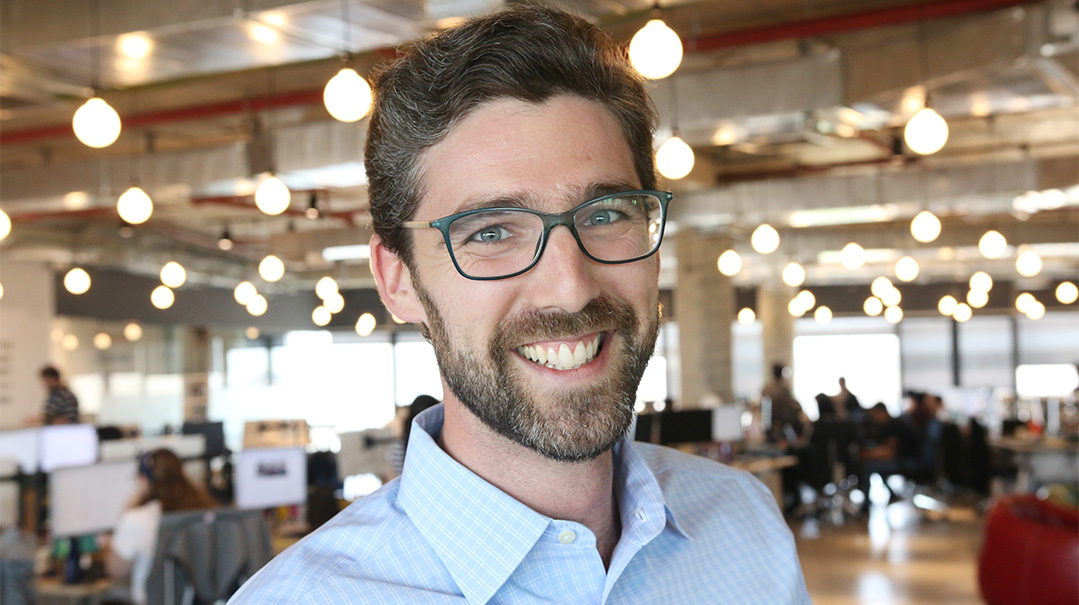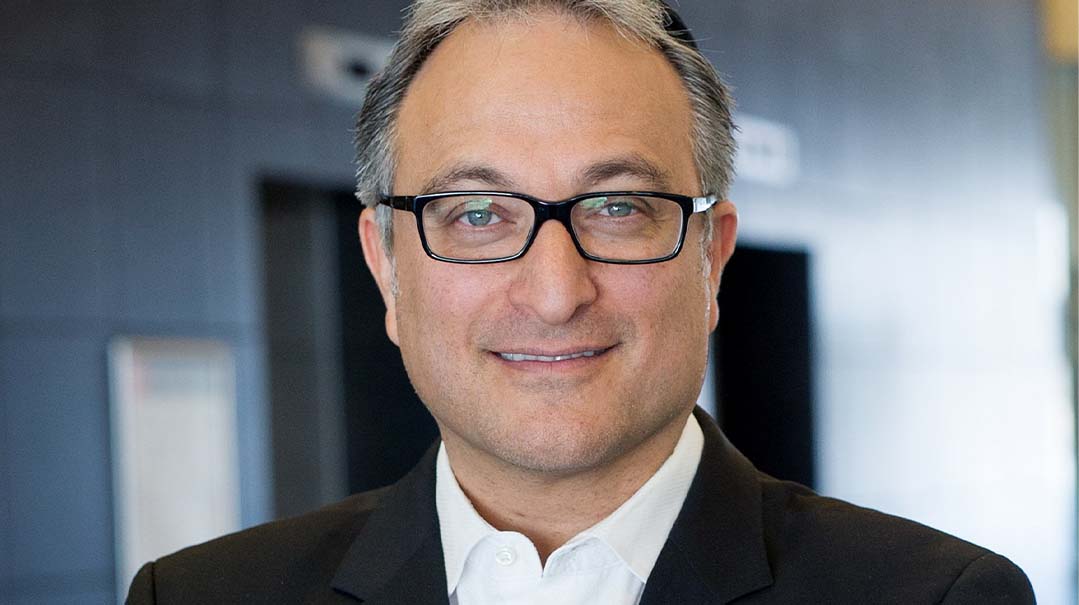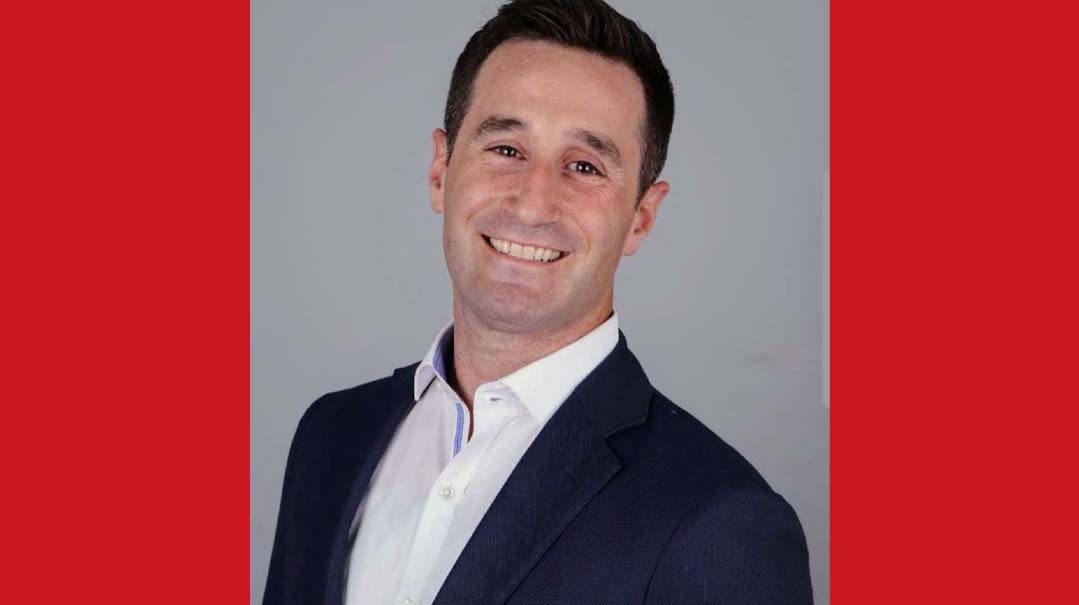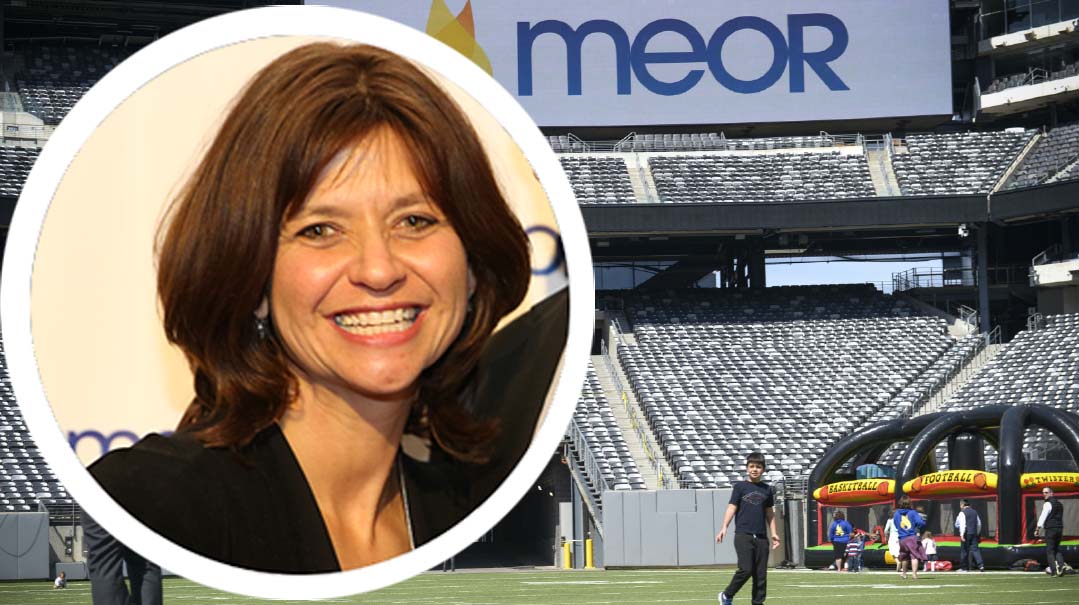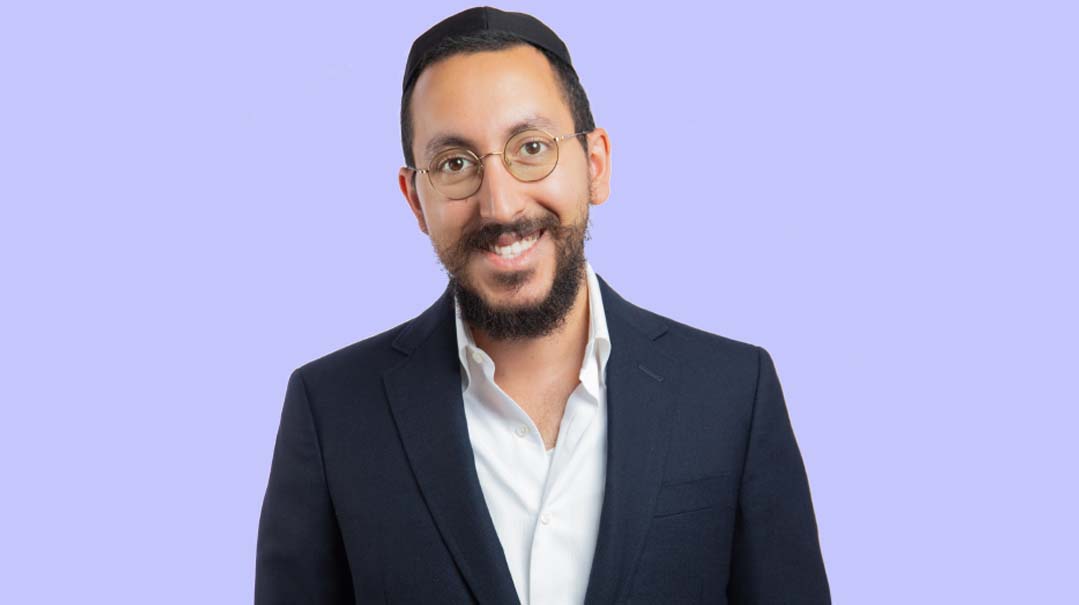Work/Life Solutions with Shmuel Eliwatt

"If you focus too much on the competition, it takes away from what you’re trying to accomplish"
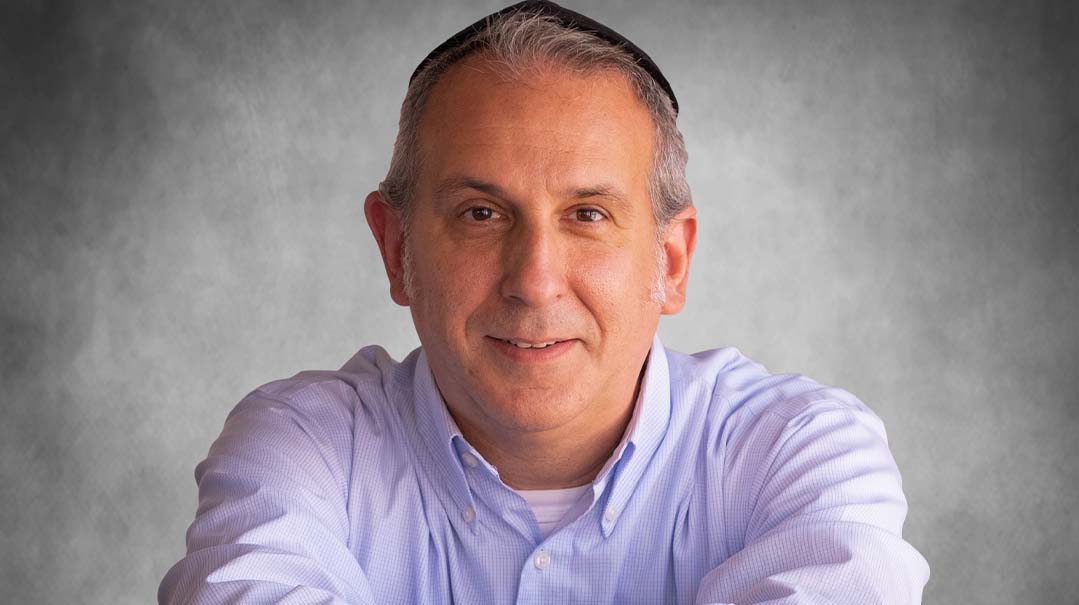
Who: Shmuel Eliwatt, once an aspiring professional race car driver and now CEO of Zahava Networks, a telecommunications and IT consulting company.
What: Following an initial career at Arthur Anderson, Shmuel has been consulting and engineering data networking and telecommunications solutions for businesses and high-end home offices for almost 20 years. He provides VIP services to businesses, schools, and home offices in both the US and Israel.
Where: Shmuel grew up in East Brunswick, New Jersey, and moved to California after high school to pursue his dream of becoming a professional race car driver. After attending Chaffey College (the only US college at that time that provided a direct educational track for a career in motorsports), he worked at Drivetech Racing School in San Bernardino, California, first as an intern and then as a full-time race mechanic. He then moved back to New Jersey to study at Rutgers University. While in college he took an elective class called “Modern Trends in Judaism,” taught by Rabbi Dr. Moshe Sherman (now a dean at Touro College), which brought him closer to Yiddishkeit. During those years, he also realized that professional race car driving wasn’t compatible with the life he wanted to live. He left the States to study at Ohr Somayach in Israel, where he also met his future wife. They got married in 2001 and lived in Passaic, New Jersey, for seven years before making aliyah. He now lives with his wife and children in Ramat Beit Shemesh.
Why: Well, how many people do you know who trained to be a professional race car driver? More importantly, Shmuel embodies noble character traits that inspire me: First, he’s one of the friendliest people I know; everyone in his orbit feels seen, heard, and valued. Second, notwithstanding his demanding work schedule, he’s very involved with chesed and Torah learning opportunities, from raising money for local organizations to his commitment to Daf Yomi. Third, while he’s had his ups and downs in business, which he shares in this interview, he maintains unwavering bitachon in Hashem.
1 of 9 What opportunities or personalities played a role in your career path?
I once aspired to be a professional race car driver. My dad planted the seed. I was eight years old when he took me to my first race at Flemington Fair Speedway in New Jersey. And by 18, I was ready to join the starting lineup. But without money or connections, I was stuck. So I headed off to California to obtain a degree in race car technology.
My professor knew that designing and building race cars was just a side gig for me while I waited for my big chance to drive. So he found me an internship at a new race car driving school where I was promised “seat” time. I practiced my driving skills doing solo time trials in professional race cars at 130 miles per hour, fancying myself the next Mario Andretti.
When I moved back to New Jersey, I enrolled in Rutgers University and took a position with a local race team. I helped prepare the race car during the week and worked on the pit crew on Friday and Saturday nights at both Flemington and East Windsor Speedways.
While in college, I moved closer to Yiddishkeit, and soon began to skip my weekend job at the racetrack because of Shabbos. And at some point, I had an epiphany — I realized that the dream that had defined my entire childhood did not align with my goals as an adult.
Racing means you’re either on the road a lot, away from your family, or you’re uprooting your family often, moving to new locations. But mainly, as I got older, the allure of risking my life to win a race faded. The lessons I learned from my racing experiences, however, are ingrained in me for life and play a huge role in my career.
Racing is ultimately about winning.
Every driver grips his steering wheel hoping he will be the first to cross the finish line. But he knows his performance is mainly contingent on the car, and however much prep work has gone into getting the car ready will show in its functioning. And a lot of advance work goes into preparing a car to win.
Probably the biggest lesson I gleaned from racing is this: Implementation will only be as good as the preparation behind it.
At the beginning of my technology career, I worked in the in-house IT department at Arthur Anderson, LLP. My managers expected me to give their clients the highest quality solutions without compromise. They pushed me and never let me get away with doing anything halfway.
“It’s not about what the client thinks he wants,” they told me. “It’s about what he needs. And sometimes, he needs less than what he wants, and sometimes, the opposite is true.”
They set the bar high, but with a lot of preparation and planning, our team was able to successfully deliver real solutions.
2 of 9 Which three character traits have played a key role in your career path?
Independence. Entrepreneurs are the only people willing to work 80 hours per week. And that’s me. I’m independent and thrive in environments where I can carve out my own path and make my own decisions, even if those decisions are sometimes more challenging.
Out-of-the-box thinking. I’m also an out-of-the-box thinker. Sometimes, my ideas are too wild (remember, I wanted to be a race car driver), but most of the time, my independence and resourcefulness help me get ahead.
One of my biggest successes early on was landing the Statue of Liberty/Ellis Island as my client. I was up against the bigwigs like Verizon and AT&T. But because I was a boutique company, I could provide my clients with an out-of-the-box solution tailored to them. The board appreciated my approach.
Relationship skills. I’m a real extrovert. When we first moved to Israel, I davened in a very Israeli shul on Friday nights. During those first few months, when I returned home from shul on time, my wife was shocked. The table wasn’t even set.
“What are you doing home so early?” she wondered.
“I can’t speak Hebrew, so I had no one to talk with,” I explained.
Talking with people and hearing their stories is one of my favorite pastimes. If I call a client to ask a simple billing question, I can easily end up having a 25-minute conversation about the weather or the history of Jews in Spain.
When it comes to business, my good friend and longtime strategic partner, Abe Lemmer of Compu-Phone Voice and Data always reminded me: “More than anything else, your clients will teach you the business. Just listen to them.”
Listening and building relationships are the keys to creating trust. My love of connecting to people from all walks of life gets me out of bed in the morning and motivates me to figure out what will make their lives better.
4 of 9 What would you say was your most resounding failure? What did you take away from that experience?
For 18 years I ran Zahava Networks USA, a telecommunications and IT consulting company, using a brokerage model. I worked with a few different companies selling their products, and built up a substantial residual income. But then the biggest company I worked with filed a $13 billion bankruptcy. Not one of my evergreen clauses or contracts could save me — they cut me off. Overnight, I lost 75 percent of the income I had built up over 18 years.
I was terrified. How could I make up that income? How would I support my family? I was already living in Israel, my Hebrew was terrible, and I’d been running my company at night during American hours. I frantically called my contacts, considered other approaches to doing the same work, and rushed off to the US to meet with everyone and anyone I knew in an attempt to rebuild my business. But the telecommunications industry in the US had changed drastically, and there was no longer a way for me to rebuild a profitable model.
There were no open doors anywhere, and if I hadn’t been a humble person before that time, I became very humble.
While the bankruptcy had nothing to do with me, my failure was due to my lack of preparation and foresight. Had I better diversified my services or owned my client base (rather than maintaining a brokerage model) I could have avoided that situation. I just never envisioned the scenario where a multibillion-dollar telephone company would suddenly go bankrupt and cut me off.
I lost that race by a full lap.
On a positive note, I now understood on a much deeper level that Hashem has a plan. All along, my wife and I said to one another — Hashem has a plan for us. We don’t know what it is exactly and when it will become clear, but the plan will unfold soon. We held on to that belief and worked really hard to move on.
In hindsight, I’m grateful for the experience. Though I’d been living in Israel for more than a decade when this happened, it was only afterward that I could really say that I’d finally made aliyah. I built a new branch to my business, Zahava Networks Israel, and adjusted my business model. Now I work Israeli hours — which means I can get to bed early, wake up early, and learn in the mornings before I start work.
5 of 9 If you were granted an extra three hours per day, or a spare million dollars, what would you do with them?
I would open a new kind of yeshivah.
Both Torah learning and general studies can be challenging for kids who struggle with learning disabilities (or for kids who learn well outside the traditional classroom environment), and that results in negative associations. It starts young. And the baggage grows. But if we catch kids before they develop baggage, and build their self-confidence through other disciplines and more active ways of learning, they’ll bring more enthusiasm and motivation to their studies. I’ve seen it happen. My dream is to one day open a yeshivah for young boys through high school that includes additional coursework in woodworking, carpentry, metal work, aircraft and automotive training, technical skills, etc. It’s a big-picture mentality. If done right, a yeshivah like this could not only preempt major issues later on, but better prepare the next generation to be productive members of society. Of course, we’d have a home-built school race car.
6 of 9 What is the most inspiring feedback you’ve ever received? Did that impact what you did next?
My first corporate job was at Arthur Anderson, LLC. It came to an abrupt end following the Enron scandal. The entire company collapsed, and I was forced to find another job.
I soon found a job teaching math and science in a local yeshivah ketanah in the US and became the technology director in another school. I loved teaching, but by the end of the year, after much soul searching, I knew I had to return to the corporate world. The week before my last paycheck arrived, my wife and I went to our rav, Rabbi Ron Yitzchok Eisenman, to request a brachah for parnassah.
He said, “I’m not going to give you a brachah. But I’ll give you advice. Tomorrow, come to davening on time and daven with kavanah. Then stop off and buy some bagels. Go home, have a nice breakfast with your wife and little boy, and just connect. Don’t talk about money. After the meal, bentsh slowly and think about all the ways Hashem takes care of you and helps you in your life.”
I did that. I also returned to the Sunday morning kollel in shul.
Less than a day later, someone I didn’t know contacted me. He ran a telecommunications consulting company, and he needed a sales manager. I knew nothing about telecommunications, and my last sales job had been in high school when I worked at an electronics store. But I knew Hashem was speaking to me. I took the job and two years later, I opened Zahava Networks.
Whenever life gets tough, I remember Rav Eisenman’s words.
On a different note, when I moved to Israel, I had the chance to “race” again. I found a go-karting racetrack and allowed myself one opportunity to revel in old times. After I climbed out of the go-kart, the manager looked at me stunned.
“Where in the world did you come from?” he said. I was a tenth of a second off the track record for the fastest time.
It was good to know I still had it. But it was even better to know that I had left it behind.
7 of 9 If you were asked to deliver a TED Talk watched by 50 million people, what topic would you choose to speak about? Why?
Race car driving is a perfect metaphor for business and life. While most people think that a car race is just a bunch of cars driving around in circles for three hours at high speeds, I know enough to appreciate what’s really happening.
Rick Mears, a four-time Indianapolis 500 winner, once said, “While no race can be won on the first lap, it can be lost there.”
And it often is.
The more reckless drivers use up all their resources in the first few laps, but good drivers are careful to preserve their tires for the final sprint at the end of the race. They also avoid using their throttle too often and too early on to conserve fuel and make fewer pit stops (which take up precious time).
Similarly, entrepreneurs who create a business plan, considering from all angles how to allocate their resources to achieve the most profitability, will likely stick around the longest.
Successful drivers also understand that it’s not just what you know about the racetrack, it’s what you see and what you feel during the race. Is it hot? Is it cold? Weather affects how a car performs. Where’s the competition? Who’s behind? Who’s in front? They have a high awareness of what’s going on around them, and are always looking several cars ahead, planning for the next corner and preparing for the next “pass.”
It’s no different when you’re running a business.
What’s the “climate” of the industry you’re working in? If your market is becoming saturated, what are you going to do about that? How are you looking ahead and setting yourself up for new opportunities?
While racing, watching the competition can be distracting. Yes, it’s important to take note of their lap times to confirm you’re on pace. But if you focus too much on the competition, it takes away from what you’re trying to accomplish.
In fact, I’ve learned that your focus should be on what the competition is not doing.
NASCAR has a rule book regarding what you can and can’t do. It’s the job of any racing crew chief to look beyond the black-and-white rules and find the gray. What points did NASCAR not write a rule about? And that’s where crew chiefs find opportunity. The biggest compliment to any racing crew chief is when NASCAR prints a new rule the week after he wins a race. How to be different and better is key.
When you work in the gray, you can find niche markets. At Zahava Networks, not everyone is our client. And that’s okay.
(Originally featured in Mishpacha, Issue 897)
Oops! We could not locate your form.
